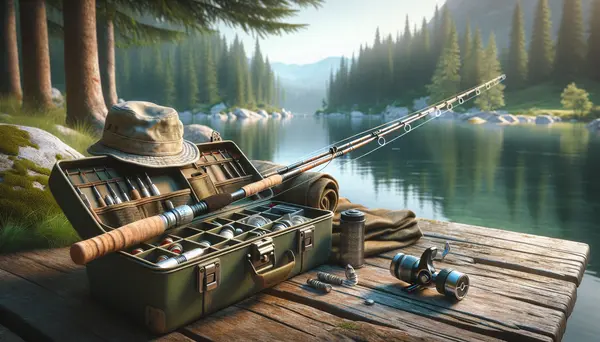Table of Contents:
Introduction to Fishing Equipment for Beginners
Welcome, budding anglers! If you're just starting your journey into the world of fishing, one of the first steps is choosing the right fishing equipment. This can be a daunting task given the vast array of gear available. But don't worry - we've got you covered. In this comprehensive guide, we'll walk you through everything from rods and reels to bait and tackle boxes.
The Importance of Choosing Right Gear
Fishing isn't just about casting a line in water; it's an art that requires skill, patience and most importantly – proper equipment. The correct fishing gear not only enhances your chances at making catches but also ensures safety while out on waters. So let’s dive straight into our beginner-friendly fishing equipment list!
Pros and Cons of Different Beginner Fishing Equipment
| Equipment | Pros | Cons |
|---|---|---|
| Spinning Rod | Easy to use and versatile | Not suitable for heavy lures |
| Baitcasting Rod | Great for heavier lures and long casts | Difficult to master, can lead to line tangles |
| Fly Fishing Rod | Provides a unique and skillful form of fishing | Requires a lot of practice, expensive |
Rods & Reels: Your Primary Tools
Your rod and reel are like extensions of yourself when fishing. They play crucial roles in determining how far you cast your line or how well you handle fish once they bite.
Fishing Rods: For beginners, start with something simple yet versatile such as medium-action spinning rods which offer good balance between flexibility (for fighting fish) and stiffness (for casting).
Fishing Reels: Spinning reels pair perfectly with spinning rods due their ease-of-use especially for those new to angling scene.
Bait & Tackle: Luring Your Catch
No matter what type of fish species you’re targeting, having appropriate bait will significantly increase success rate.
Lures: These artificial baits mimic movements or colors of prey attracting attention from predatory fishes. There are countless types including spinners, spoons, and soft plastics.
Live Bait: Some anglers prefer using live bait such as worms or minnows. These can be more effective in certain situations but require additional care to keep them alive.
Tackle Box: Organizing Your Gear
A well-organized tackle box is an angler's best friend. It keeps all your fishing equipment neatly arranged making it easier for you to find what you need when out on water.
Your tackle box should include essentials like extra line, hooks of various sizes, bobbers (or floaters), sinkers (weights), a knife, pliers and first aid kit among others.
Fishing Line & Hooks: Connecting You To Fish
The type of fishing line and hook used depends largely on the kind of fish species targeted. As beginners though, monofilament lines are recommended due their versatility across different types of waters and fishes while size 6-10 hooks work well for most freshwater species.
Safety Equipment: Ensuring Safe Fishing Trips
Last but not least – safety gear! This includes life jackets (especially if venturing into deep waters), sunscreen lotion (to protect against harmful UV rays) along with hats/caps for shade during sunny days. Remember - safety always comes first!
In Conclusion
Selecting right fishing equipment may seem overwhelming at start but once you understand basics – it becomes part fun journey towards becoming skilled angler! So take time exploring options available before settling down with ones that suit your needs best. Happy Fishing!
Fishing Equipment Guide for Beginners
What is the essential fishing equipment for beginners?
The essential fishing equipment for beginners includes a fishing rod, fishing reels, fishing line, hooks, and baits or lures.
How do I choose the right fishing rod?
When choosing a fishing rod, consider factors like the type of fishing you'll be doing, the fish species you're targeting, and your level of experience. Length, power, and action are also important considerations.
What type of fishing reel is best for beginners?
Spinning reels are often recommended for beginners because they are easy to use and versatile. They are good for both freshwater and saltwater fishing.
Which fishing line should a beginner choose?
Monofilament lines are best for beginners due to their versatility, knot strength, and ease of use. They can be used in most fishing conditions and are easy to handle.
Are live baits better than artificial lures for beginners?
Both live baits and artificial lures have their advantages. Live baits are often more attractive to fish, but lures can be more versatile and durable. As a beginner, it's a good idea to experiment with both to see which works best for you.







